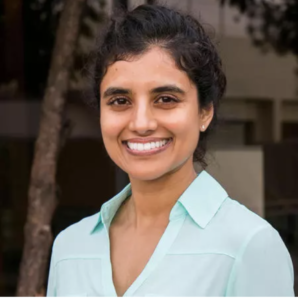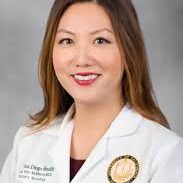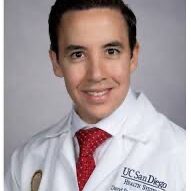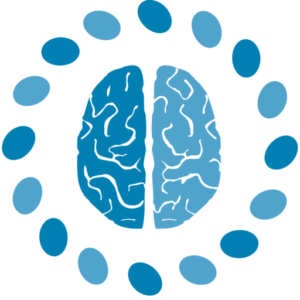About the San Diego Neurosciences Society
The San Diego Neurosciences Society was founded in 2018. It has emerged from two long-standing San Diego clinical societies: the San Diego Neurology Society and the San Diego Academy of Neurosurgery. It is a vibrant forum for discussion of a wide range of topics in the clinical and basic neurosciences, and promotes interaction across institutions, between disciplines, and between senior and junior faculty and trainees.
The members and audience include clinicians and investigators in the fields of neurology and neurosurgery, scientists, neuropsychologists, and others with a professional interest in the neurosciences. Monthly meetings at the U.C. San Diego Faculty Club consist of lectures, case conferences, and clinical presentations that cover a cross section of interests in the clinical neurosciences. The Society is supported by both member dues and educational grants, and through UCSD it is accredited by the Accreditation Council for Continuing Medical Education to provide continuing medical education for physicians.
This website is designed to provide information for the members of the Society and those interested in joining; it can also be used by patients and the public. Public information on this website includes upcoming meetings and community events.
In the early 1970s San Diego neurologists Bob Nichols, MD and then Jim Nelson MD, held informal meetings at UCSD Medical Center in Hillcrest to discuss updates in neurology as well as interesting and difficult cases. The San Diego Neurology Society got its start 1973 when a migraine study run by Don Dalessio MD had to be terminated prematurely. Left over funds became the seed money to start the Society and Dr. Dalessio became its founding president. Richard Rowan MD and Paul Schultz MD joined as first Vice President and first Program Chair, respectively. By 1974 the Society met monthly downtown at the old University Club, moving to the UCSD Faculty Club. Later the Society met at the Ida and Cecil Green UCSD Faculty Club.
In 1996, when Paul Raffer MD wrote about the history of neurology and neurosurgery in San Diego, he counted 97 neurologists and 37 neurosurgeons in San Diego County. Many developed boutique practices in medicolegal, headache, pain management, rehab, and industrial medicine as a way of coping with the economics of managed care. By 2010 the number of neurologists approached 200, including trainees and researchers.
The San Diego Academy of Neurosurgery began in 1957 for educational purposes when a founding group of Drs. Werden, James, Crue, Colter, Garrity, Barnum, Cobb, Woods, Freeman, Bushard, Greenwood, Penka, and Barba got tired of the drive to LA to attend meetings of the Southern California Neurosurgical Society for Continuing Medical Education.
In the ensuing 60 years, the Academy met regularly each year with an invited speaker at each meeting. The initial Academy membership of private practice surgeons was followed by a gradual membership diversification reflecting the changing San Diego neurosurgical scene as first UCSD, then Scripps Clinic, then Kaiser hired neurosurgeons all along with a small but consistent cadre of surgeons at the Navy some of whom joined the SD scene.
Even with an increasing population of neurosurgeons in San Diego over the years, the support for the Academy waned until members decided that merging with the San Diego Neurology Society was the best route to maintain a local forum for nervous system education.
Current Executive Committee

Chamindra Gurusinghe Laverty, M.D.
President
Chamindra Gurusinghe Laverty MD is an associate clinical professor in the department of neurosciences at the University of California San Diego. She is a clinician-educator and clinical researcher serving pediatric and adult neuromuscular patients at the University of California, San Diego (UCSD), VA San Diego Health Care System and Rady Children’s Hospital (RCH), focusing on genetic and acquired neuromuscular disease. She has been the director of the pediatric multidisciplinary neuromuscular clinic (Muscular Dystrophy Association, MDA) across two institutions, since 2011. She also pioneered and launched the first adult multidisciplinary neuromuscular (MDA) clinic at UCSD in 2016. At the VA, she is the lead neuromuscular specialist caring for nearly all ALS veterans and severe but treatable acquired and genetic neuromuscular disease in our veterans. Since the start of her career, she has educated many neurology residents in the science of neurology, art of medicine, and has mentored and nurtured their growth and development as doctors and individuals. Teaching has always been a passion as she continually seeks to improve the methods of learning and use technology to learn complex topics. Her work week encompasses half a day of didactics with the fellows, about an hour teaching resident from other disciplines and nearly all remaining time spent doing hands-on training with neurology residents and fellows in the practice of medicine. Lastly, she is a clinical researcher focused on improving the survival and quality of life of her patients.

Olivia Kim-McManus, M.D.
Vice President of Neurology Programs
Olivia Kim-McManus, M.D.
Dr. Olivia Kim-McManus is an Associate Clinical Professor at UC San Diego School of Medicine Department of Neurosciences and a pediatric neurologist and epileptologist at Rady Children's Hospital Division of Pediatric Neurology.
Dr. Olivia Kim-McManus is Board certified in Neurology with special qualifications in Child Neurology and a Board-certified epileptologist with additional expertise in Pediatric Epilepsy and Clinical Neurophysiology.
Dr. Kim-McManus completed undergraduate studies at Columbia University in New York City with a degree in Neurosciences. She received a National Institutes of Health Postbaccalaureate Intramural Research Training Award and subsequently trained at Children's National Medical Center, earning her medical doctorate from the George Washington University School of Medicine in Washington, D.C. She completed residencies in pediatrics and neurology at Children's Hospital Los Angeles/University of Southern California. Subsequently, she completed two additional fellowships at UC Irvine School of Medicine/Children's Hospital Orange County to further specialize in pediatric epilepsy and clinical neurophysiology.
She specializes in treating infants, children and adolescents with pediatric neurological conditions including neurological conditions related to brain malformations, underlying genetic etiologies, intellectual disabilities and neurodevelopmental problems of childhood. Her primary expertise and interests include pediatric epilepsy, epilepsy genetics, and epilepsy surgery. She performs invasive intracranial electroencephalography monitoring with stereotactic depth electrodes or grid electrodes and intraoperative electrocorticography. She treats medically intractable epilepsy patients with ketogenic diet therapy in addition to surgical procedures including resective brain surgery, hemispherectomy, minimally invasive laser ablation therapy and/or implantable neuromodulation devices such as responsive neurostimulation (RNS), deep brain stimulation (DBS) and vagal nerve stimulation (VNS) as alternative therapies to medications.
Dr. Kim-McManus primarily sees pediatric patients with epilepsy at Rady Children's Hospital in the Division of Pediatric Neurology. She also monitors infants with neonatal seizures on continuous EEG in the neonatal intensive care unit at UC San Diego Jacobs Medical Center.
Her research activities include site principal investigator in a multicenter research study with UC Irvine and UC Berkeley/UCSF involving memory and cognition in pediatric epilepsy surgery patients undergoing intracranial EEG monitoring. She is a principal investigator and co-investigator in multiple additional epilepsy trials involving antisense oligonucleotide drugs in rare developmental epileptic encephalopathies (Dravet Syndrome, SCN2A, Angelman Syndrome), mitochondrial epilepsies and software development for absence epilepsy. She is a PI for n=1 individualized antisense oligonucleotide therapies for children at Rady Children's Hospital with severe developmental epileptic encephalopathies due to rare genetic causes. She serves on the Rady Children's Institute of Genomic Medicine Task Force for Clinical Whole Genome Sequencing and The N=1 Collaborative Institutional Implementations and Clinical Outcomes Task Forces to bring forward rare disease therapies for children with unmet need.
Dr. Kim-McManus established and directs the Neuro-Infusion Program for Batten's Disease (Late infantile ceroid neuronal lipofuscinosis type 2) at Rady Children's Hospital, a bi-weekly cerliponase alfa enzyme replacement delivered intraventricularly via Ommaya reservoir, a disease-modifying therapy for rare, pediatric neurodegenerative disease.
Dr. Olivia Kim-McManus is also the director of the Pediatric Epilepsy Fellowship Program at UC San Diego, Rady Children's Hospital where she trains medical students, residents and fellows.
She is also the Neurology Section Vice Chief of Medical Staff at Rady Children's Hospital and a Professional Advisory Board member of the Epilepsy Foundation of San Diego.
Dr. Kim-McManus is a member of the American Epilepsy Society, Child Neurology Society and American Academy of Neurology.
In her spare time, she enjoys spending time with her husband and three children.

David Santiago-Dieppa, M.D.
Vice President of Neurosurgery Programs
Dr. Santiago-Dieppa, is a board-certified neurosurgeon who specializes in endovascular, cerebrovascular and complex cranial surgery. As part of his UC San Diego Health academic practice he provides specialized care at the main UC San Diego Health campuses, VA Medical Center San Diego, Rady Children's Hospital San Diego, Palomar Medical Center Escondido and Tri-City Medical Center. Dr. Santiago-Dieppa works with patients and their families to develop individualized treatment strategies that are minimally invasive and maximally effective. Dr. Santiago-Dieppa has a passion for the treatment of cranial and spinal tumors and vascular disease.
As an Assistant Professor in the Department of Neurological Surgery, Dr. Santiago-Dieppa has extensive clinical and translational research experience and is actively engaged in teaching medical students, residents and fellows at the UC San Diego School of Medicine.
Originally from Los Angeles, Dr. Santiago-Dieppa received his Bachelor of Science in Biochemistry at UC Riverside where he graduated Magna Cum Laude. Dr. Santiago-Dieppa received his Doctor of Medicine with Alpha Omega Alpha distinction from The Johns Hopkins University School of Medicine. He completed his neurosurgical residency and fellowship in Endovascular Neurosurgery UC San Diego.
He is a member of many professional organizations, including the American Association of Neurological Surgeons and the Congress of Neurological Surgeons.
Outside of work, Dr. Santiago-Dieppa enjoys spending time with his wife and three children.

TBD
Secretary
TBD

TBD
Treasurer
TBD